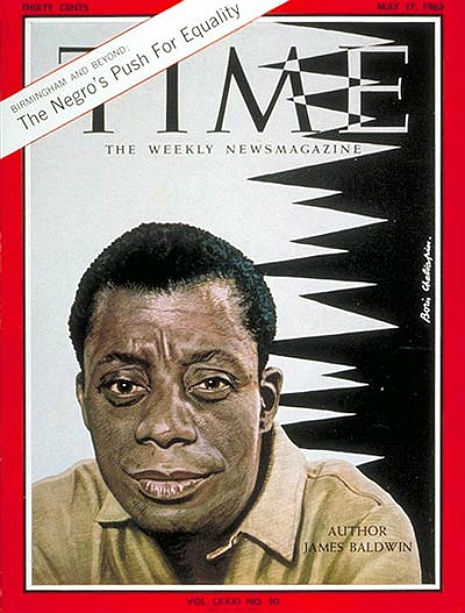
In 1963, James Baldwin wrote two essays that examined the role of race and racism in the history of America. Published in The New Yorker, Baldwin’s first essay, written in the form of a letter to his fourteen-year-old nephew on the 100th anniversary of Emancipation explained “the crux of [his] dispute with [his] country”:
You were born where you were born and faced the future that you faced because you were black and for no other reason. The limits to your ambition were thus expected to be settled. You were born into a society which spelled out with brutal clarity and in as many ways as possible that you were a worthless human being. You were not expected to aspire to excellence. You were expected to make peace with mediocrity.
Baldwin developed his historical and political analysis in his second essay in which he described his own experience of religion, criticising both Christianity and Islam as being culpable in maintaining ethnic division and oppression—where the white oppressors had attempted to destroy black men and women:
...the truth about the black man, as a historical entity and as a human being, has been hidden from him, deliberately and cruelly; the power of the white world is threatened whenever a black man refuses to accept the white world’s definitions. So every attempt is made to cut the black man down—not only was made yesterday but is made today.
Baldwin’s essays proved so popular and influential they were collected and published book form as The Fire Next Time later the same year. This book placed Baldwin as one of the major figures in the American civil rights movement of the 1960s, and as one of the greatest public intellectuals of the twentieth century.

In 1968, along with comedian and activist Dick Gregory, James Baldwin gave a talk at the West Indian Student Center in London, where he and Gregory discussed the American black experience in relation to the Afro-Caribbean experience in Britain. The seminar was documented by a young filmmaker Horace Ové, who filmed the proceedings and later edited the footage into a documentary called Baldwin’s Nigger (1969). Though there is nothing special in the way in which Ové filmed the meeting (mainly in a flat, news-report style), it is the content of what each participant said, in particular Baldwin, that makes Ové‘s film so important, as he had fortunately captured an important debate and conversation between Baldwin, Gregory and the audience about ethnicity, identity, politics and racism at a crucial moment in world history.
Baldwin began by talking about a visit to the British Museum where he got in conversation with a West Indian man who asked the writer where he was from.
I told him I was from Harlem. That answer didn’t satisfy him…
“Yes,” he said “But man, but where were you born?”
And I began to get it.
“Well,” I said, “My mother was born in Maryland, my father was born in New Orleans, I was born in New York.”
He said, “But before that where were you born?”
And I had to say, “I don’t know.”
Baldwin went onto explain why he doesn’t know—for his ancestral entry into America was by a “bill of sale, which stops you from going any further.”
But Baldwin wasn’t interested in just offering personal historical context of the black American experience, he also asked provocative and difficult questions about white ethnicity and the complex relationship between all Americans:
White men lynched negroes knowing them to be their sons. White women watched men being lynched knowing them to be their lovers… How are white Americans so sure they are white?
The point is racism damages everyone.
In light of the institutionalised racism exposed by the Michael Brown fiasco in Ferguson, the killing of Eric Garner in New York and the rise of racist and xenophobic politics across Europe and the Middle East, Horace Ové‘s film of James Baldwin and Dick Gregory is necessary viewing.